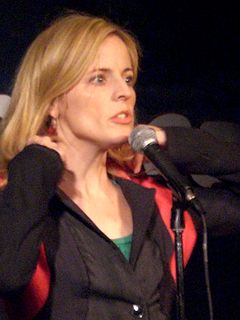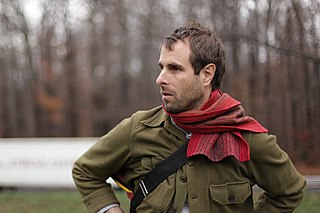A Quote by Patrick deWitt
I come by writing dialogue fairly naturally, I've got a chatty family; I'm a bit of a voyeur, and if I'm ever in a public place, I automatically find myself listening.
Related Quotes
Interacting with other people does not come naturally to me; it is a strain and requires effort, and since it does not come naturally I feel like I am not really myself when I make that effort. I feel fairly comfortable with my family, but even with them I sometimes feel the strain of not being alone.
Sometimes I find it tiresome to write actions and describe the scene in a very intricate way so that every crew member understands where we are going - that I can find a little bit long and tiresome. But dialogue is just all my life. There's no way I could ever be challenged, not challenged, but I'm always so happy to write dialogue.
I often need physical gesture to balance dialogue. If I write in public, every time I need to know what a character is doing with his hand or foot, I can look up and study people and find compelling gestures that I can harvest. Writing in public gives you that access to a junkyard of details all around you.
The way you write dialogue is the same whether you're writing for movies or TV or games. We use movie scriptwriting software to write the screenplays for our games, but naturally we have things in the script that you would never have in a movie script -- different branches and optional dialogue, for example. But still, when it comes to storytelling and dialogue, they are very much the same.
Unless there is a strong sense of place there is no travel writing, but it need not come from topographical description; dialogue can also convey a sense of place. Even so, I insist, the traveler invents the place. Feeling compelled to comment on my travel books, people say to me, "I went there"---China, India, the Pacific, Albania-- "and it wasn't like that." I say, "Because I am not you.





































